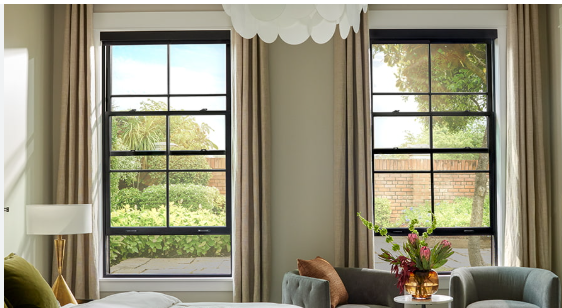Windows are more than just architectural features; they’re the gateways through which light, air, and energy enter our homes. According to Vastu Shastra, the ancient Indian science of architecture, the placement and design of windows play a pivotal role in harnessing positive energy and creating a harmonious living space. Whether you’re planning a new window installation or renovating your home, understanding Vastu principles can help you make informed choices.
The Importance of Windows in Vastu Shastra
In Vastu, windows are considered vital for the flow of prana, or life energy. They allow natural light and fresh air to circulate, which is essential for physical and mental well-being. Properly placed windows ensure that positive energy enters while negative energy is expelled. The direction, size, and number of windows all influence the energy dynamics of a space. So, how do you get it right? Let’s break it down.
Directional Guidelines for Window Placement
Vastu Shastra associates each direction with specific energies, and window placement should align with these principles for optimal results.
North-Facing Windows
The north direction, governed by Kuber, the deity of wealth, is considered highly auspicious. Windows in this direction invite prosperity and abundance. They also allow soft, diffused sunlight to enter, keeping the space cool and serene. For homes or offices, north-facing windows are ideal for living rooms, study areas, or workspaces. Ensure these windows are large enough to maximise light but avoid cluttering them with heavy curtains.
East-Facing Windows
East, ruled by the sun, is the direction of new beginnings and vitality. Windows facing east welcome the morning sun’s gentle rays, which are believed to promote health and positivity. This direction is perfect for bedrooms, as waking up to natural light can uplift your mood. A French window design in the east can add elegance while enhancing energy flow. Keep these windows unobstructed to let sunlight stream in freely.
Northeast-Facing Windows
The northeast, or Ishanya, is the most sacred direction in Vastu, associated with divine energy. Windows here are considered extremely auspicious, as they allow the purest form of sunlight to enter. This direction is ideal for meditation rooms, puja spaces, or quiet corners. However, avoid placing too many windows in the northeast, as it may disrupt the energy balance. Two medium-sized windows are usually sufficient.
South and West-Facing Windows
The south and west directions are associated with stronger, harsher sunlight. While windows in these directions are not inherently negative, they require careful planning. South-facing windows should be smaller to minimise heat, especially in warmer climates. West-facing windows, which receive intense afternoon sunlight, are better suited for kitchens or bathrooms. Use thick curtains or blinds to regulate light and maintain a comfortable temperature.
Avoid Windows in Certain Areas
Vastu advises against placing windows directly above the main entrance, as this can allow positive energy to escape. Similarly, windows in the southwest corner should be minimal, as this area is associated with stability and grounding. If you must have windows here, keep them small and use frosted glass to diffuse energy.
Size and Number of Windows
The size and number of windows matter just as much as their direction. Vastu recommends an even number of windows in a home, such as 2, 4, or 6, to maintain balance. Windows should be proportionate to the room’s size—neither too large nor too small. Oversized windows can lead to energy leakage, while tiny ones may restrict airflow. For a modern touch, consider a sliding window installation, which is space-efficient and aligns well with Vastu’s emphasis on unobstructed energy flow.
Window Design and Materials
The design and materials of windows also influence energy dynamics. Wooden frames are highly recommended in Vastu, as wood is a natural, grounding material that promotes stability. Metal frames, while durable, should be used sparingly, as they can conduct heat and disrupt energy balance. Glass should be clear to allow maximum light penetration, but tinted or frosted glass can be used in south or west-facing windows to reduce glare.
The shape of windows should ideally be rectangular or square, as these shapes promote harmony. Avoid irregular or circular windows, which can create energy imbalances. Ensure that windows open outwards, as this facilitates the expulsion of stale air and invites fresh energy. Regularly clean windows to keep them free of dust and grime, which can block positive energy.
Enhancing Energy Flow with Window Placement
To amplify the benefits of well-placed windows, consider these additional Vastu tips:
- Ventilation: Ensure windows allow cross-ventilation to keep air circulating. Stagnant air can lead to lethargy and negativity.
- Curtains and Blinds: Use light, natural fabrics like cotton or linen for curtains. Avoid dark, heavy materials that block light and energy.
- Plants: Place small potted plants near east or north-facing windows to enhance positivity. Avoid thorny plants like cacti, which can disrupt energy.
- Clutter-Free Sills: Keep window sills clean and free of clutter to allow energy to flow unimpeded.
Common Mistakes to Avoid
When planning window placement, steer clear of these common pitfalls:
- Placing windows directly opposite each other, as can cause energy to rush through without settling.
- Installing windows in dark corners or basements, which can trap negative energy.
- Ignoring the surrounding environment—windows facing noisy roads or polluted areas can bring in disruptive energies.
Conclusion
Creating a home that radiates positive energy is all about thoughtful design and alignment with natural principles. By following Vastu tips for window placement, you can transform your living space into a sanctuary of balance and harmony. Whether you’re opting for a new window installation, a sleek sliding window installation, or an elegant French window design, these guidelines will help you make choices that enhance both aesthetics and energy flow. For those looking to elevate their home’s Vastu compliance with premium windows, brands like Eternia offer durable, stylish options that seamlessly blend functionality with modern design. Embrace these tips, and let your windows become conduits for light, air, and positivity.





Comments